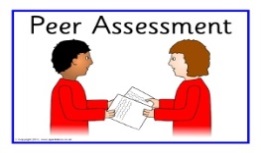
|
Unit 1 Communication and Technology |
School: T.Amandosov |
||
|
Date:09.10.24y |
Teacher name:Tokabaeva.A |
||
|
Grade: 7a |
Number present: |
absent:0 |
|
|
Lesson title |
Free-time activities |
||
|
Learning objectives |
7.2.4.1 understand with limited support the main points of extended talk on a range of general and curricular topics 7.5.3.1 write with some support about personal feelings and opinions on a limited range of familiar general and curricular topics |
||
|
Learning objectives (assessment criteria) |
Learners will be able to: - Learn verbs about free-time activities. - Listen to a podcast about metal detecting. - Listen for general meaning and specific details. - Write personal sentences about free time using adverbs of frequency |
||
|
Levels of thinking skills |
Knowledge and comprehension |
||
|
Stages/ Time |
Teachers actions |
Students actions |
Assessment |
Resources |
|
Beginning 5min |
Greeting. (Whale class, Individually) T tells the class to make groups of 2. Warm up: Ask students what they understand by these words, then ask them to say what their favourite activities are. • Ask students if they have a lot of free time, or not enough. Elicit some ideas I ride a bike. She watches TV. He has a lunch. He goes fishing. He plays chess Setting the aim of the lesson.
|
Learners read the given sentences on the board and guess the topic and share with their ideas. Remember and recognize the main vocabulary. |
Teacher controles the process, gives feedback and asks additional questions if it’s nessasery. Teacher evaluate pupils with phrases like: “Good job! Well done!” Formative Assessment |
Sheets of peppers Pictures of to be https://images.app.goo.gl/LFEZz2HpHNGS9H68A |
|
Middle 35min |
Task. I (Wh, I) (pair dicsussion) Ex: 1 P: 12 Tell students to read through the options and try to guess as many as they can, before they listen and check. Check the answers and ask around the class to find out how many activities the students guessed correctly |
Learners choose the correct words ANSWERS 1 TV 8 shopping 2 music 9 the internet 3 computer games 10 swimming 4 friends 11 in a band 5 sport 12 cycling 6 things 13 to the cinema 7 photos 14 magazines and books |
Pair assessment
Descriptor: - read through -guess the words Total: 2 point |
Student’s book p.12 |
|
|
Task. II (Wh, I) (Task for location) Ex: 2 P: 12 Look at the photo with the class and ask students to identify the activity (metal detecting). They can answer in their own language. Explain that students are going to listen to a girl talking about this activity. Tell students to read the questions and all the options carefully before they listen to the podcast. Play the CD. TAPESCRIPT P Do you pay to play football with your friends? Of course you don’t! You pay for some hobbies, like going to the cinema. But you hardly ever find a hobby that pays you. Meet Justine Meyer. She makes money from her hobby: metal detecting. First of all, what do you need, Justine? J You need a metal detector, of course! P And what do you do? J You move the metal detector slowly over the ground, like this. J There’s sometimes metal under the ground. When it passes over metal,… Justine … it makes a noise. P Cool! Who do you go with? Do you go with your friends? J No, it’s usually me and my dad. We share the same hobby! My mum isn’t interested in it. P Right. When do you go metal detecting? J In the school holidays. Why do you go in the school holidays? J Because I’ve always got free time then. P And where do you go? J We usually go to a park, but we sometimes go to the beach, too. P Is it expensive? J Well, metal detectors are expensive. Apart from that, my hobby pays me! P How? Do you find gold? J No, we never find gold, but we often find modern coins. I collect all the euro coins. I’ve got 183 euros now! P Great! Justine Meyer, thank you … T asks some CCQs:
|
Learners read the information about the Money Matters Podcast. Then listen and. ANSWERS 1 b 2 c 3 c 4 a Learners answers Yes or No in CCQ ANSWERS -Yes - No - Yes - No |
Feedback: “Thumbs up, thumbs down” After correct answer teacher shows thumbs up, if there are some mistakes thumbs down with comments Descriptor: - read the information - listen the podcast Total: 2 point Descriptor: - answers Yes or No Total:1point |
Student’s book p.12 |
|
|
Task. III (Task for understanding) Ex: 3 P: 12 Focus students on the diagram, and demonstrate the fixed sequence of the adverbs of frequency. Check answers, then ask about the position of the adverbs. In a stronger class, elicit ideas about the rules from the students as a class discussion. Elicit the rules, then write these on the board for students to copy into their notebooks. Differentiation with individual need learners: Define that there is a distinction between the verbs be, have got and other verbs. Write these verbs as sub-headings on the board and write an example for each |
Learners study the diagram. Then order sentences. Start with the least frequent. Answer the question. ANSWERS: e 2 a 3 d 4 f 5 b 6 c The rules for the position of adverbs of frequency are: Before most verbs: He never loses things. After the verb be: She is always late. Between have and got: I’ve always got my mobile phone in my bag. |
Teacher’s comment Descriptor: - read the text - choose the correct answers -write the verbs Total: 3 point |
Student’s book p.12 |
|
|
Task. IV Ex: 4 P: 12 • Remind students to use a variety of adverbs when writing their sentences. |
Learners write true sentences using the present simple and adverbs of frequency. ANSWERS: 1 We … play computer games. 2 I … go swimming. 3 My friends and I … watch DVDs. 4 I have … got a mobile phone with me. 5 I am … late for class. 6 My friends and I … go cycling. |
Pair assessment
Descriptor: - write true sentence - use present simple. Total: 2 point |
Student’s book p.12 |
|
End 5min |
The Ladder method was used as a reflection. T asks Ss to stick their stickers to the Success Ladder. Green- I understood Yellow-I have some questions Red-I need a help. Ex: P: 5 p.12 Home task |
Ss use their stickers to show their knowledge according to the lesson
|
Poster Success Ladder |
|
жүктеу мүмкіндігіне ие боласыз
Бұл материал сайт қолданушысы жариялаған. Материалдың ішінде жазылған барлық ақпаратқа жауапкершілікті жариялаған қолданушы жауап береді. Ұстаз тілегі тек ақпаратты таратуға қолдау көрсетеді. Егер материал сіздің авторлық құқығыңызды бұзған болса немесе басқа да себептермен сайттан өшіру керек деп ойласаңыз осында жазыңыз
Ашык сабақ
Ашык сабақ
|
Unit 1 Communication and Technology |
School: T.Amandosov |
||
|
Date:09.10.24y |
Teacher name:Tokabaeva.A |
||
|
Grade: 7a |
Number present: |
absent:0 |
|
|
Lesson title |
Free-time activities |
||
|
Learning objectives |
7.2.4.1 understand with limited support the main points of extended talk on a range of general and curricular topics 7.5.3.1 write with some support about personal feelings and opinions on a limited range of familiar general and curricular topics |
||
|
Learning objectives (assessment criteria) |
Learners will be able to: - Learn verbs about free-time activities. - Listen to a podcast about metal detecting. - Listen for general meaning and specific details. - Write personal sentences about free time using adverbs of frequency |
||
|
Levels of thinking skills |
Knowledge and comprehension |
||
|
Stages/ Time |
Teachers actions |
Students actions |
Assessment |
Resources |
|
Beginning 5min |
Greeting. (Whale class, Individually) T tells the class to make groups of 2. Warm up: Ask students what they understand by these words, then ask them to say what their favourite activities are. • Ask students if they have a lot of free time, or not enough. Elicit some ideas I ride a bike. She watches TV. He has a lunch. He goes fishing. He plays chess Setting the aim of the lesson.
|
Learners read the given sentences on the board and guess the topic and share with their ideas. Remember and recognize the main vocabulary. |
Teacher controles the process, gives feedback and asks additional questions if it’s nessasery. Teacher evaluate pupils with phrases like: “Good job! Well done!” Formative Assessment |
Sheets of peppers Pictures of to be https://images.app.goo.gl/LFEZz2HpHNGS9H68A |
|
Middle 35min |
Task. I (Wh, I) (pair dicsussion) Ex: 1 P: 12 Tell students to read through the options and try to guess as many as they can, before they listen and check. Check the answers and ask around the class to find out how many activities the students guessed correctly |
Learners choose the correct words ANSWERS 1 TV 8 shopping 2 music 9 the internet 3 computer games 10 swimming 4 friends 11 in a band 5 sport 12 cycling 6 things 13 to the cinema 7 photos 14 magazines and books |
Pair assessment
Descriptor: - read through -guess the words Total: 2 point |
Student’s book p.12 |
|
|
Task. II (Wh, I) (Task for location) Ex: 2 P: 12 Look at the photo with the class and ask students to identify the activity (metal detecting). They can answer in their own language. Explain that students are going to listen to a girl talking about this activity. Tell students to read the questions and all the options carefully before they listen to the podcast. Play the CD. TAPESCRIPT P Do you pay to play football with your friends? Of course you don’t! You pay for some hobbies, like going to the cinema. But you hardly ever find a hobby that pays you. Meet Justine Meyer. She makes money from her hobby: metal detecting. First of all, what do you need, Justine? J You need a metal detector, of course! P And what do you do? J You move the metal detector slowly over the ground, like this. J There’s sometimes metal under the ground. When it passes over metal,… Justine … it makes a noise. P Cool! Who do you go with? Do you go with your friends? J No, it’s usually me and my dad. We share the same hobby! My mum isn’t interested in it. P Right. When do you go metal detecting? J In the school holidays. Why do you go in the school holidays? J Because I’ve always got free time then. P And where do you go? J We usually go to a park, but we sometimes go to the beach, too. P Is it expensive? J Well, metal detectors are expensive. Apart from that, my hobby pays me! P How? Do you find gold? J No, we never find gold, but we often find modern coins. I collect all the euro coins. I’ve got 183 euros now! P Great! Justine Meyer, thank you … T asks some CCQs:
|
Learners read the information about the Money Matters Podcast. Then listen and. ANSWERS 1 b 2 c 3 c 4 a Learners answers Yes or No in CCQ ANSWERS -Yes - No - Yes - No |
Feedback: “Thumbs up, thumbs down” After correct answer teacher shows thumbs up, if there are some mistakes thumbs down with comments Descriptor: - read the information - listen the podcast Total: 2 point Descriptor: - answers Yes or No Total:1point |
Student’s book p.12 |
|
|
Task. III (Task for understanding) Ex: 3 P: 12 Focus students on the diagram, and demonstrate the fixed sequence of the adverbs of frequency. Check answers, then ask about the position of the adverbs. In a stronger class, elicit ideas about the rules from the students as a class discussion. Elicit the rules, then write these on the board for students to copy into their notebooks. Differentiation with individual need learners: Define that there is a distinction between the verbs be, have got and other verbs. Write these verbs as sub-headings on the board and write an example for each |
Learners study the diagram. Then order sentences. Start with the least frequent. Answer the question. ANSWERS: e 2 a 3 d 4 f 5 b 6 c The rules for the position of adverbs of frequency are: Before most verbs: He never loses things. After the verb be: She is always late. Between have and got: I’ve always got my mobile phone in my bag. |
Teacher’s comment Descriptor: - read the text - choose the correct answers -write the verbs Total: 3 point |
Student’s book p.12 |
|
|
Task. IV Ex: 4 P: 12 • Remind students to use a variety of adverbs when writing their sentences. |
Learners write true sentences using the present simple and adverbs of frequency. ANSWERS: 1 We … play computer games. 2 I … go swimming. 3 My friends and I … watch DVDs. 4 I have … got a mobile phone with me. 5 I am … late for class. 6 My friends and I … go cycling. |
Pair assessment
Descriptor: - write true sentence - use present simple. Total: 2 point |
Student’s book p.12 |
|
End 5min |
The Ladder method was used as a reflection. T asks Ss to stick their stickers to the Success Ladder. Green- I understood Yellow-I have some questions Red-I need a help. Ex: P: 5 p.12 Home task |
Ss use their stickers to show their knowledge according to the lesson
|
Poster Success Ladder |
|

шағым қалдыра аласыз


















